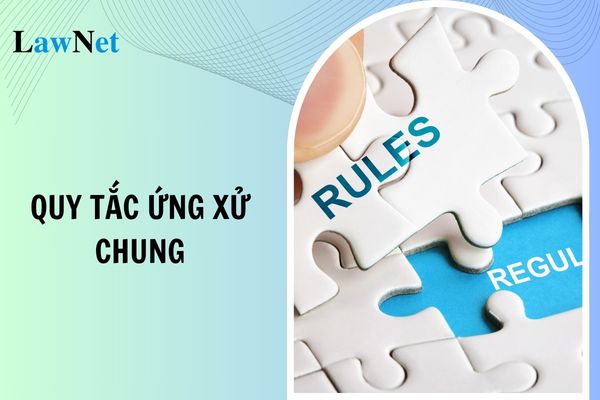What are general codes of conduct of educational institutions in Vietnam?
What are general codes of conduct of educational institutions in Vietnam?
Based on Article 4 of Circular 06/2019/TT-BGDDT on general codes of conduct of educational institutions:
(1) Strictly adhere to the legal provisions regarding the rights and obligations of citizens, officials and public employees, teachers, workers, and learners.
(2) Adopt a healthy, positive lifestyle, showing care, sharing, and helping others.
(3) Protect and maintain the educational institution’s landscape; create a safe, friendly, green, clean, and beautiful educational environment.
(4) Managers and teachers must wear decent and suitable attire for the educational environment and activities; staff must wear attire appropriate to the educational environment and the nature of their work; learners must wear clean, neat clothes appropriate for their age and educational activities; parents and visitors must wear attire appropriate to the educational environment.
(5) Do not wear attire that is offensive or inappropriate.
(6) Do not smoke, consume alcohol, use prohibited substances within the educational institution as per legal regulations; do not participate in social evils.
(7) Do not use social media to disseminate, propagate, or comment on information or images that are contrary to cultural traditions, go against the Communist Party's direction, state policies and laws, or adversely affect the educational environment.
(8) Do not cheat, deceive, slander, provoke conflicts, harass, coerce, threaten, or use violence against others.
(9) Do not harm the health, honor, or dignity of oneself, others, or the reputation of the collective.

What are general codes of conduct of educational institutions in Vietnam? (Image from the Internet)
What are regulations on teachers' conduct in educational institutions in Vietnam?
According to Article 6 of Circular 06/2019/TT-BGDDT on teachers' conduct in educational institutions:
(1) Conduct with learners: Use appropriate and understandable language, give praise or criticism fitting the individual and the situation; be a model, tolerant, responsible, and loving; respect differences, treat fairly, advise, listen, and encourage learners; actively prevent school violence, build a safe, healthy, and friendly educational environment. Do not insult, cause harm, exploit; do not suppress, have prejudice, abuse, or ignore, avoid, or cover up learners' misconduct.
(2) Conduct with management staff: Use respectful, honest, and open language; actively provide advice and clearly express opinions; comply with the leadership's direction, management, and assignments as regulated. Do not insult, cause disunity; do not ignore, avoid, or cover up the management staff's misconduct.
(3) Conduct with colleagues and staff: Use proper, honest, friendly, and open language; share and support; respect differences; protect the reputation, honor, and dignity of colleagues and staff. Do not insult or be indifferent, causing disunity.
(4) Conduct with learners' parents: Use proper, honest, respectful, friendly, cooperative, and sharing language. Do not insult, impose, or exploit.
(5) Conduct with visitors to the educational institution: Use proper and respectful language. Do not insult or cause difficulty or trouble.
What are principles for developing the code of conduct of educational institutions in Vietnam?
According to Article 3 of Circular 06/2019/TT-BGDDT on the principles for developing a Code of Conduct in educational institutions:
(1) Comply with legal regulations; fit ethical standards, cultural traditions, and national customs.
(2) Reflect core values: Kindness, respect, responsibility, cooperation, honesty in each member's relationships within the educational institution, with others, the surrounding environment, and themselves.
(3) Ensure orientation for ethical education, cultural lifestyle, developing qualities, and learners' abilities; enhance professional ethics of management staff, teachers, employees, and the responsibility of the head of the educational institution.
(4) Easy to understand, easy to implement; appropriate for each age group, educational level, and cultural characteristics of each region.
(5) The construction, amendment, and supplementation of the Code of Conduct must be discussed democratically, objectively, publicly, and agreed upon by the majority of the educational institution members.

